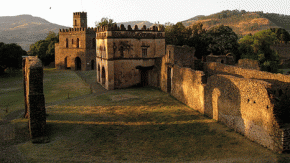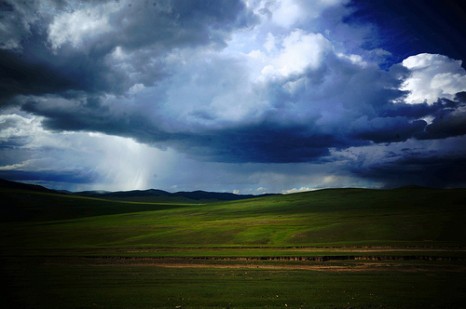Climate science
13th century kings aggravate land degradation in Ethiopia
Ethiopia’s complex feudal history means farmers still unwilling to plant trees, hastening the country’s extreme land degradation
World can still avoid dangerous global warming, says IPCC co-chair
Thomas Stocker says world still has a choice whether to avoid climate-related catastrophe and keep warming below 2C
Micro plankton could increase ocean acidity
As oceans become more acidic, smaller plankton will thrive at the expense of larger species, with potentially serious effects
Global ‘cooling’: how will the IPCC explain 15-year temperature hiatus?
Climate sceptics have a favourite war cry: temperatures have not risen much for 15 years. How will the IPCC confront the challenge?
Scientists urge landowners to protect peatland carbon sinks
Thousands of hectares of peatlands, especially in south-east Asia, are at risk from palm oil plantation developers
Research highlights health benefits of cutting air pollution
By 2100 up to 3 million people could be at risk of dying if leaders do not take action against greenhouse gas emissions
UN General Assembly: time for leaders to deliver climate ambition
World leaders need to take more ambitious actions to confront the mounting threat of climate change
Russia urges UN’s IPCC climate report to include geoengineering
Guardian: Russian government is asking for ‘planet hacking’ to be included in the climate science report, leaked documents show
Study identifies 10 regions to target climate adaptation funding
Conservation International study highlights need for adaptation funding to be increased and targetted at specific regions
Russian authorities threaten to shoot Greenpeace Arctic protesters
The Russian coastguard threatened to shoot two activists, who this morning climbed on board an Arctic oil rig, says Greenpeace
Arctic ice hits sixth lowest record as summer draws to a close
US National Snow and Ice Data Center says this year’s Arctic summer sea ice figures are in line with overall warming trend
Halving global CO2 emissions will cost less than 1% of GDP – report
Cutting emissions to safe levels is both technologically and economically feasible, say scientists
Are developing nations equally to blame for climate change?
Deciding which countries have contributed most to climate change depends on how you calculate historic and current emissions
NOAA: August 2013 temperatures fourth highest on record
August the 342nd consecutive month with a global temperature above the 20th century average
Southern Africa set to be hit by climate related migration
Southern Africa could be among areas hardest hit by climate change. A rapidly expanding population is likely to add to future problems, says a new study
Kenyan farmers warned climate change may impact crop yields
Report suggests changing rainfall patterns will make previously desolate areas fertile, but could also decimate country’s maize-friendly regions
Climate change case now ‘overwhelming’ warn scientists
With the IPCC’s AR5 report just 10 days from publication, 12 eminent scientists warn the case for action is now uncontestable
90% of ice lost from Antarctica comes from underside of icebergs
Scientists have discovered that many Antarctic ice shelves are losing ice not just by calving icebergs but by melting from their undersides as well.
Arctic Ocean acidifiying at ‘unprecedented levels’ as sea ice melts
Melting sea ice exposes Arctic Ocean to atmospheric CO2, acidifying water and damaging ecosystems
Met Office: Arctic Sea ice is declining
Sea Ice Scientist Ann Keen says variations in ice coverage is ‘not unexpected’ but long term projections see thickness and area diminishing














